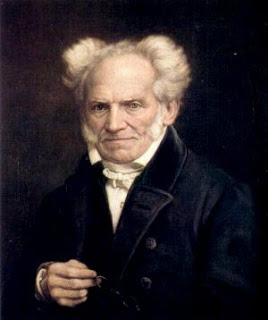Philosophy
In the last post about determinism and free will it was stated that according to the determinism definition and the examples we?ve dealt with it is impossible to prove that we have free will. In fact, deterministic reasoning suggests that we have no free will; however, there are various branches of determinism ? for instance compatibilism (since William James called also soft determinism). What?s the definition of compatibilism and what?s so interesting about it? The interesting part of it is probably combining free will with determinism ? according to compatibilism free will canexist even if our actions are determined.
- Free And Fair Elections
Whenever an aspiring democracy sends its citizens to the polls, we hear that monitors are on the ground to determine if the election was free and fair. Now, an election could certainly be free without being fair, say, if there was no intimidation of voters...
- The Problem Of Non-evil
Is the standard notion of heaven self-consistent? Can you have both the necessary freedom from suffering and freedom of the will for those in heaven? If you say that there is no suffering in heaven because the only people allowed in are those who would...
- Determinism And Free Will
In the post about materialism and substance dualism we?ve briefly dealt with the problem of making decisions (such as standing up). But did you really have free will to actually decide to stand up? Well, according to the determinism theory you did...
- David Eagleman - The Brain And The Law
There is almost universal agreement among philosophers, neuroscientists, cognitive psychologists, and other mind researchers that the mind has a physical basis in the brain. Sure, we don't yet understand the particular mechanism through which the...
- Experimental Philosophy...will It Work?
"Experimental Philosophy Opens New Avenues Into Old Questions" by Jeff Harrison March 17th, 2011 UA News UA philosophy professor Shaun Nichols examines the notions of free will and determinism through test methods used in social sciences. Philosophers...
Philosophy
Defining free will ? Schopenhauer and compatibilism
 |
| Arthur Schopenhauer (1788-1860) |
You may wonder how it is possible but as you?ll see the answer is really easy. It?s all about defining free will correctly (from the compatibilists? point o view of course). It is possible to define free will in such a way that ? despite deterministic limitations ? free will will be still free (though it will not be free from determinants). Take a closer look to the definition of free will by Arthur Schopenhauer:
Man can do what he wills but he cannot will what he wills.
You may notice that there are so to say two levels of free will. On one hand you can do anything you will ? and this is undeniably the freedom of mind ? on the other hand however you can?t change your will. Your free will controls only the actions, there is no "free will no. 2" which would be responsible for controlling your "free will no. 1". If you took some time to consider this sentence, maybe you would find a paradox in it. Isn?t the action of willing already an action? I mean, this is something you can do? you can will. Therefore if you can do what you will you can also will what you will but that?s contradictory to the second part of definition stating that you can?t will what you will. Hence the first part of the sentence would be correct only if the action of willing would not be actually an action and couldn?t be done; and if an action can?t be performed and if an action is not an action it means it does not exist. If it does not exist, compatibilism would be ripped of free will and would become a traditional determinism?
Don?t you think that we often use terms whose definitions are actually really broad and vague? Determinists frequently argue if human beings have free mind or not. Such discussions are sometimes completely meaningless if there is no consensus about what free mind is. You may argue if boombleday exists but the discussion would never end because nobody really knows what boombleday means. What do you think about free will? Is it possible to define it? I?d love to hear from you!
Is it possible to define free will?
- Free And Fair Elections
Whenever an aspiring democracy sends its citizens to the polls, we hear that monitors are on the ground to determine if the election was free and fair. Now, an election could certainly be free without being fair, say, if there was no intimidation of voters...
- The Problem Of Non-evil
Is the standard notion of heaven self-consistent? Can you have both the necessary freedom from suffering and freedom of the will for those in heaven? If you say that there is no suffering in heaven because the only people allowed in are those who would...
- Determinism And Free Will
In the post about materialism and substance dualism we?ve briefly dealt with the problem of making decisions (such as standing up). But did you really have free will to actually decide to stand up? Well, according to the determinism theory you did...
- David Eagleman - The Brain And The Law
There is almost universal agreement among philosophers, neuroscientists, cognitive psychologists, and other mind researchers that the mind has a physical basis in the brain. Sure, we don't yet understand the particular mechanism through which the...
- Experimental Philosophy...will It Work?
"Experimental Philosophy Opens New Avenues Into Old Questions" by Jeff Harrison March 17th, 2011 UA News UA philosophy professor Shaun Nichols examines the notions of free will and determinism through test methods used in social sciences. Philosophers...
